I’ll start by saying I’m not against textbooks. I support what’s best for kids.
I had the opportunity to speak at GACIS today and I shared a major concern of mine with a group of decision makers across Georgia. Recently, I’ve been inundated with textbook samples labeled “Common Core”. I’m not singling one out but it’s the the same across the board…for the most part.
Here’s some characteristics of textbooks when I was in school:
- lots of problems (like 35 per page)
- shows how to do the math
- naked math followed by 2-3 word problems
Has anything changed? You be the judge.
Here is what the CCSS version looks like:
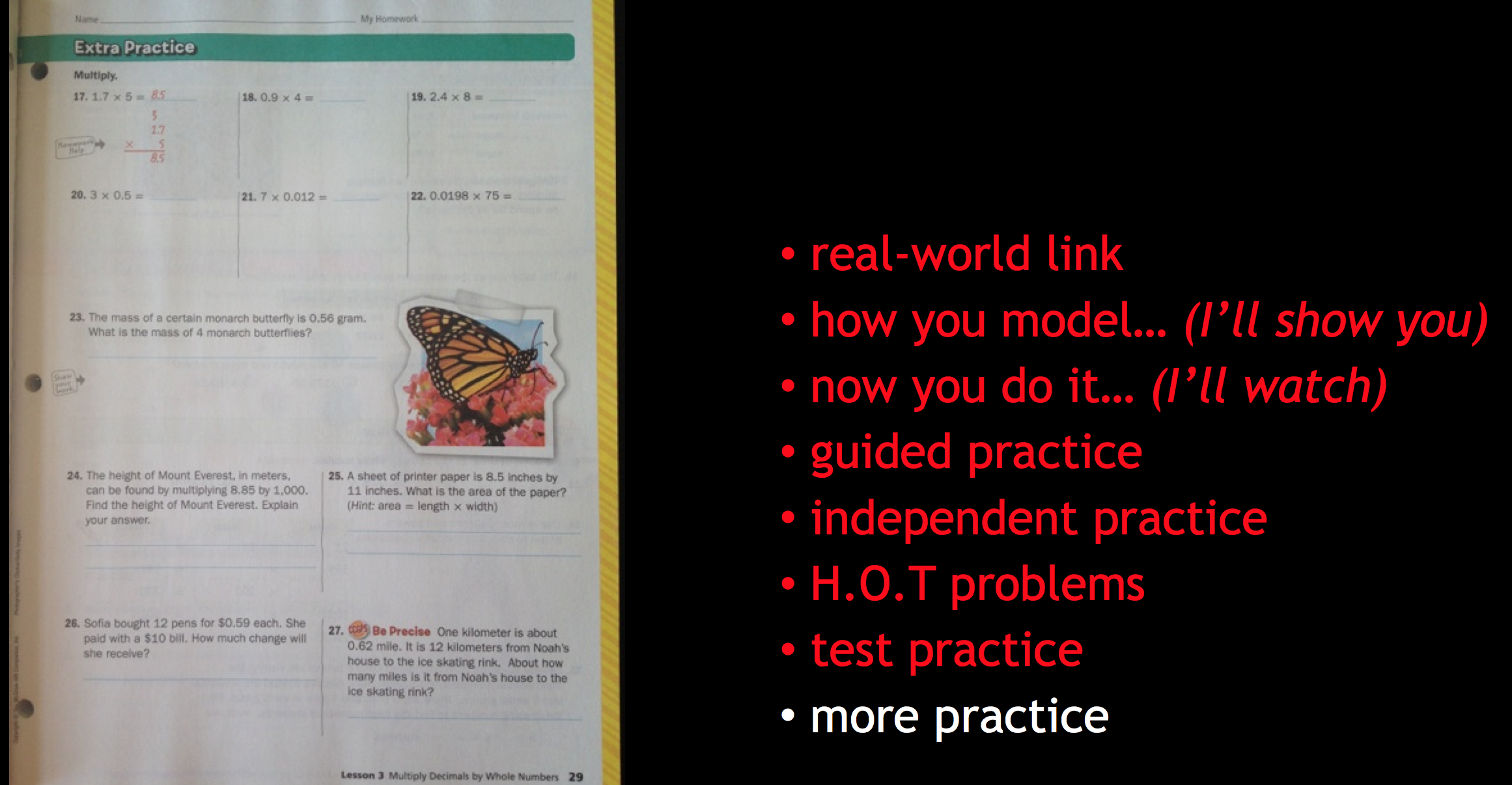
So here is what we have as a wrap up…
The CCSS stamp on the front of a book doesn’t mean its what’s best for kids. You can put lipstick on a pit bull and it’s ….

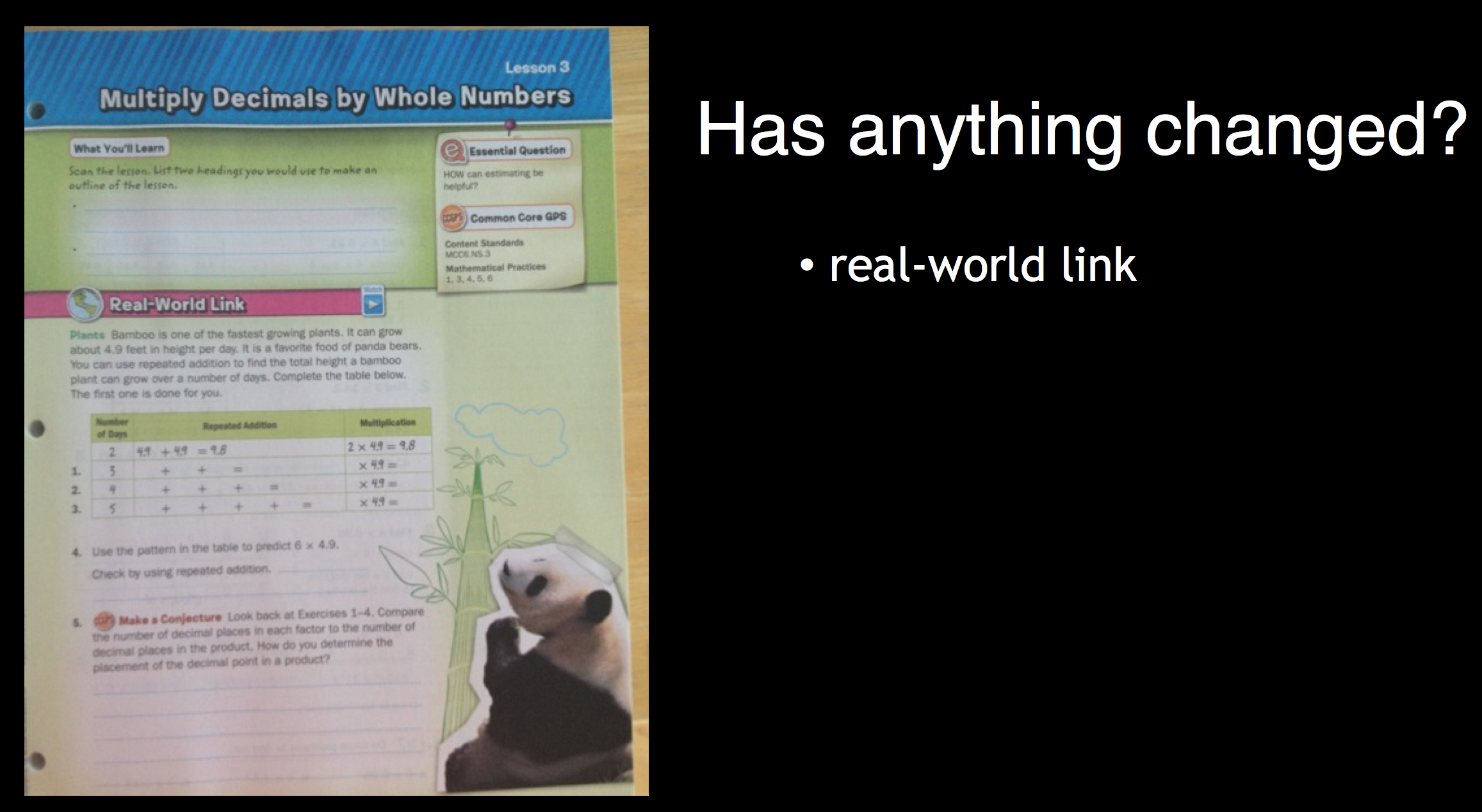
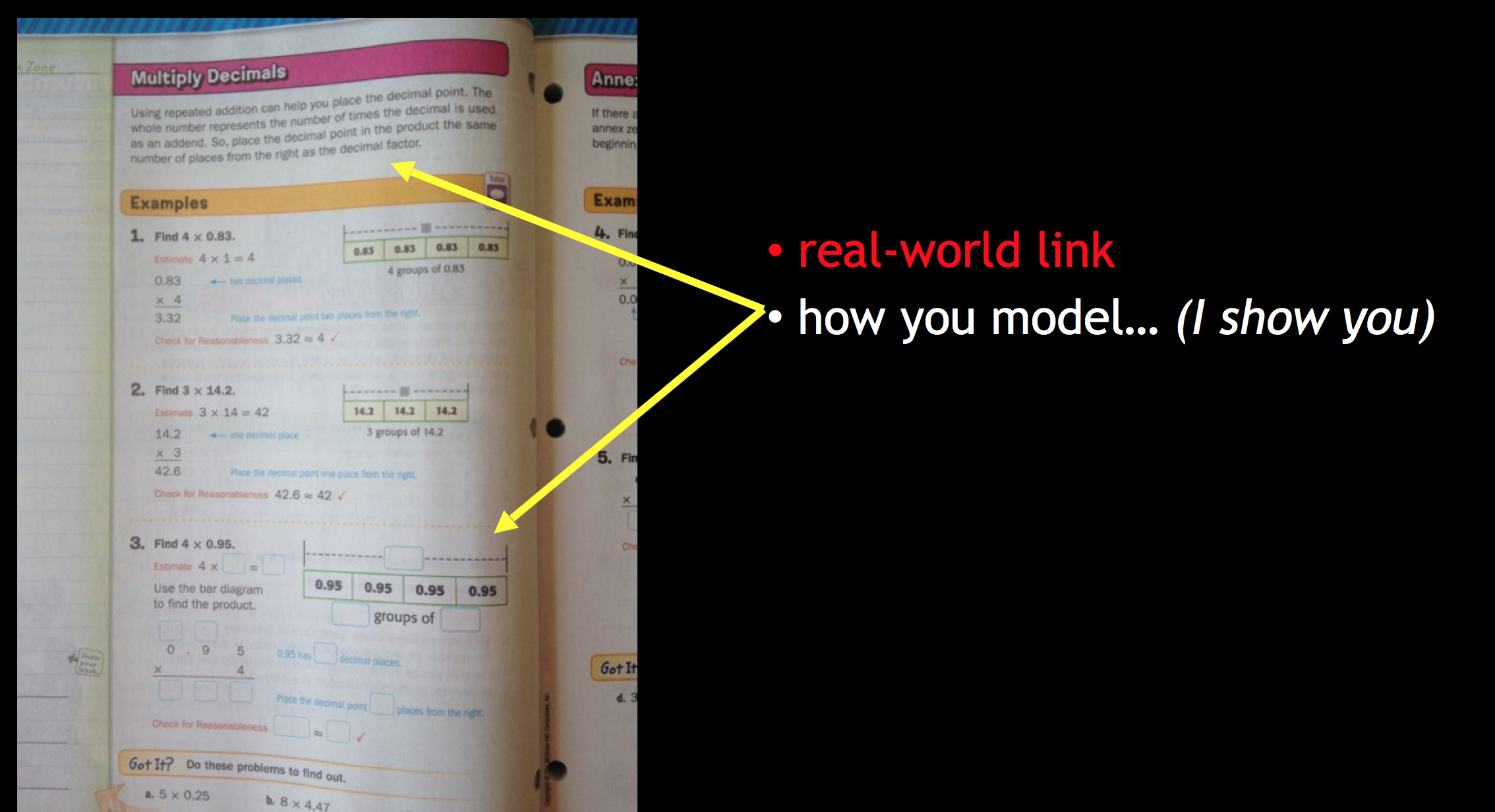
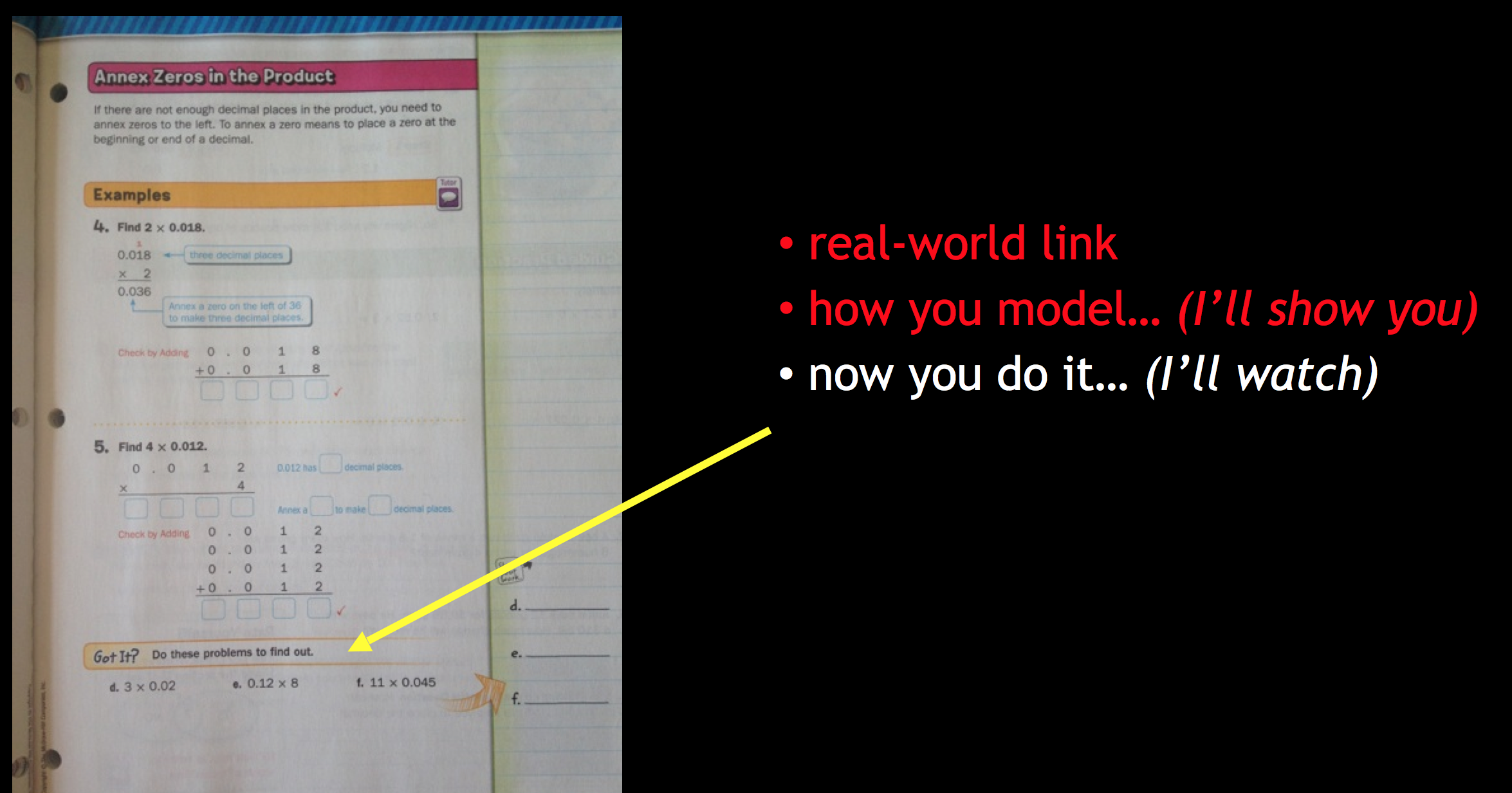
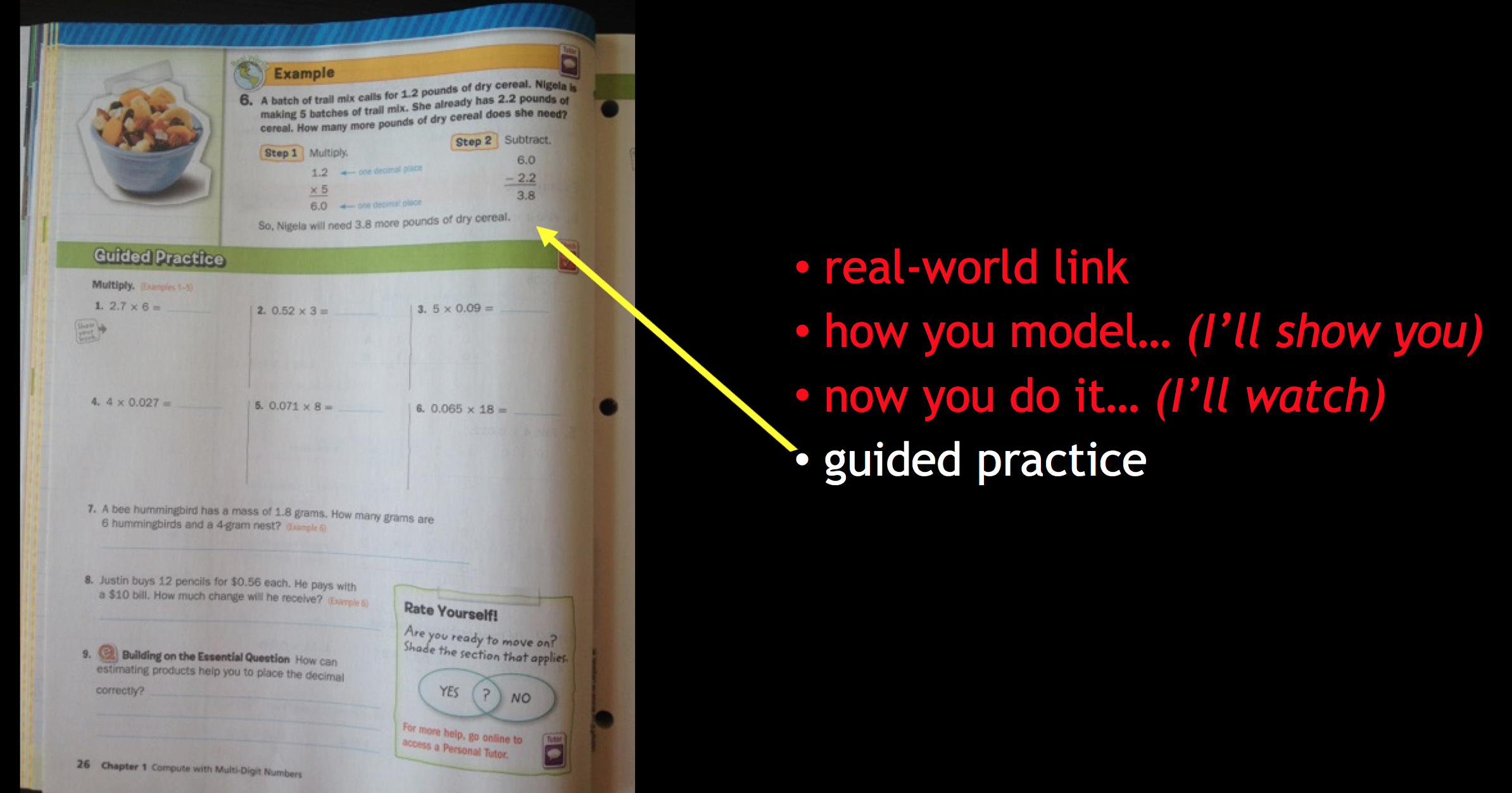
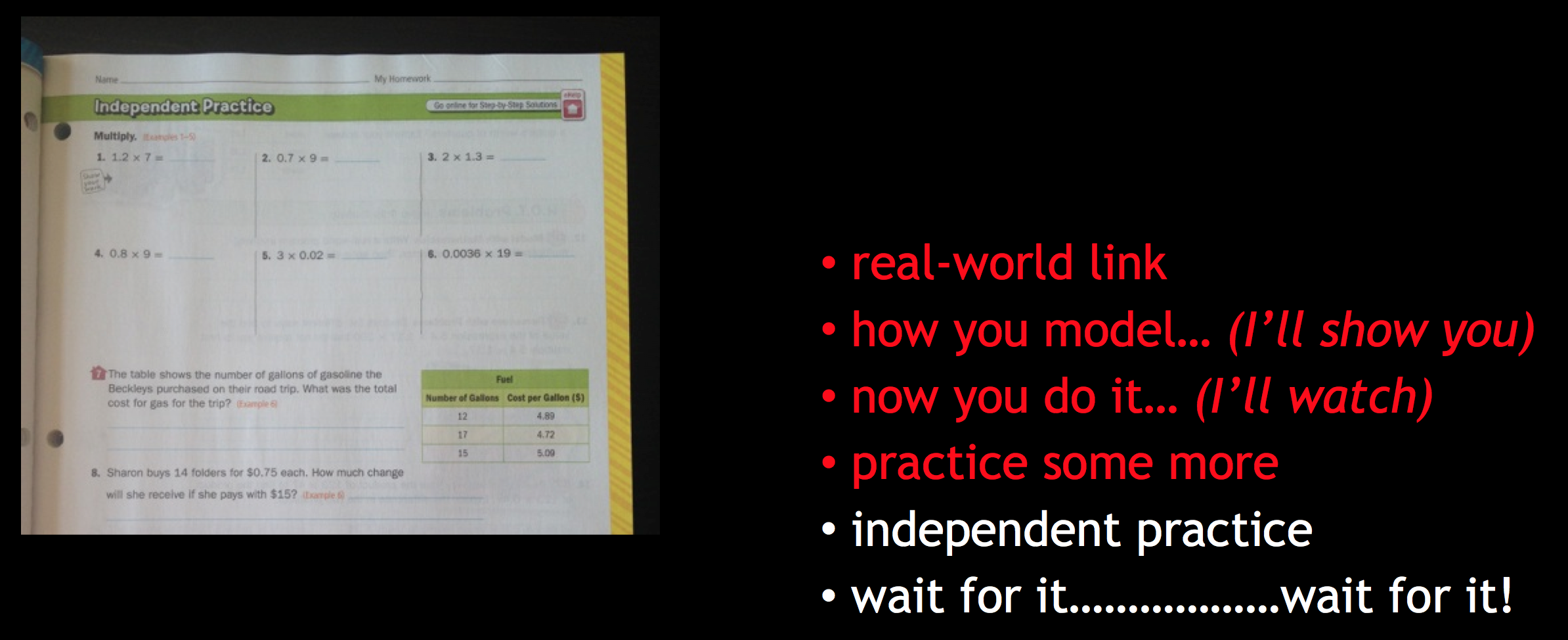
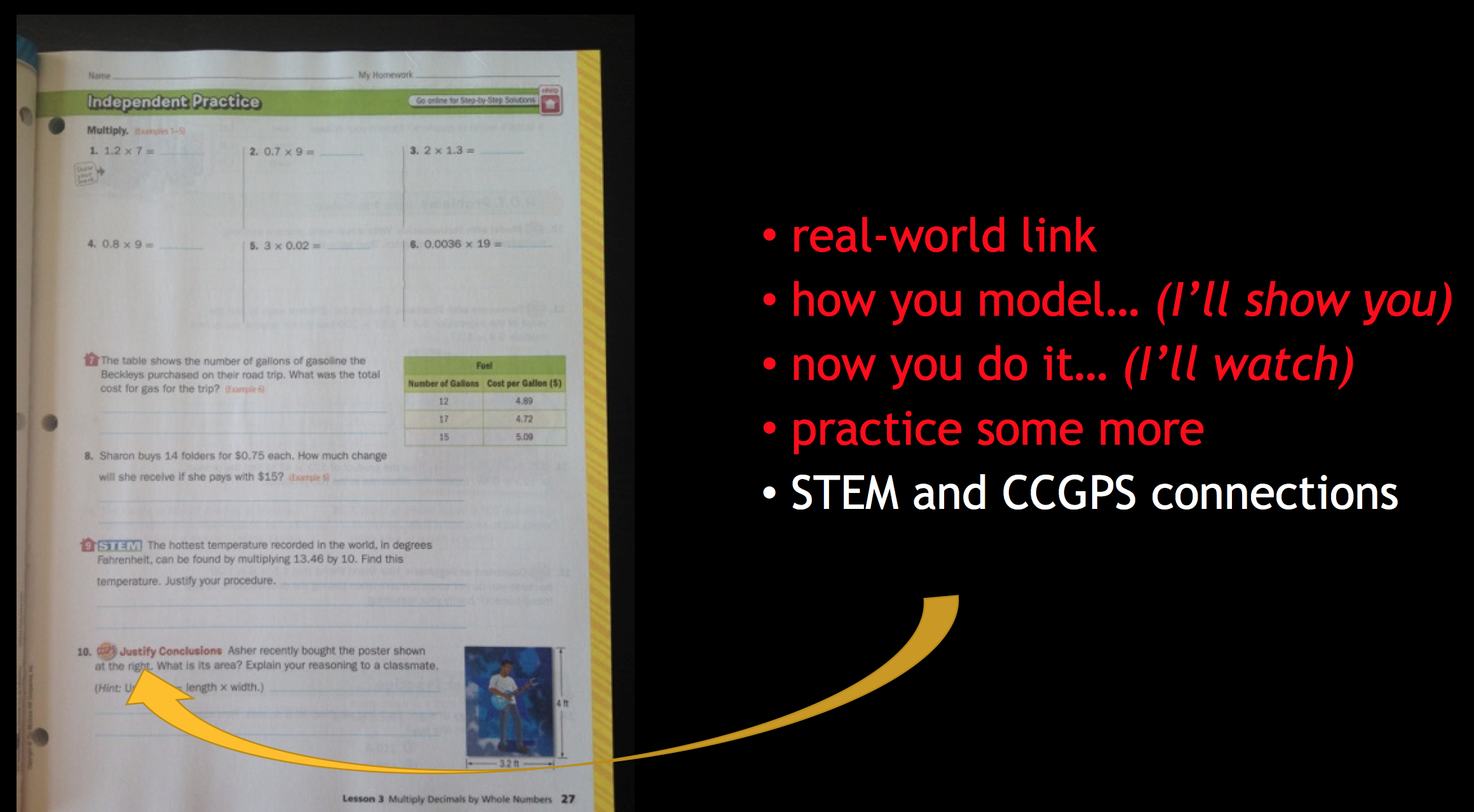
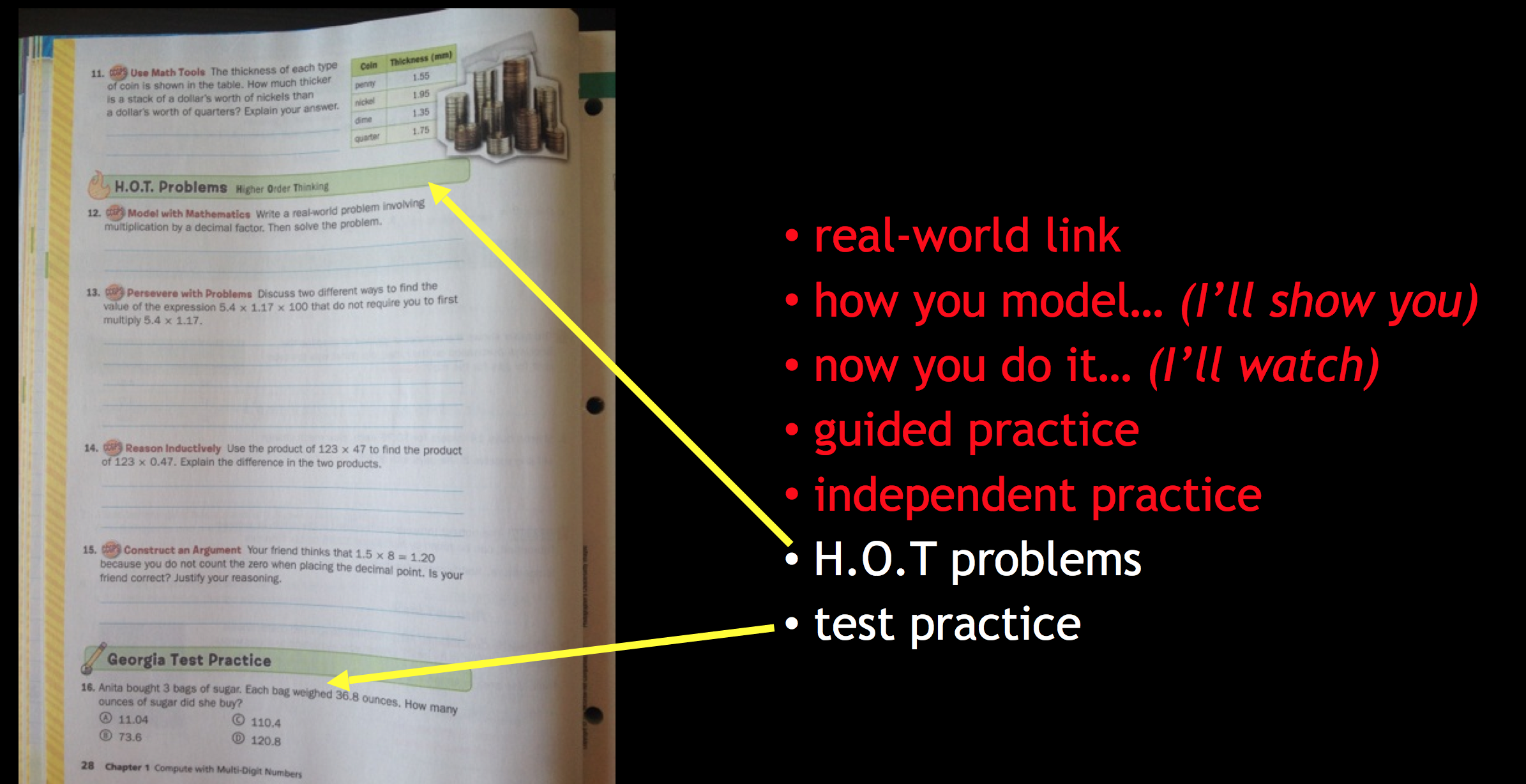
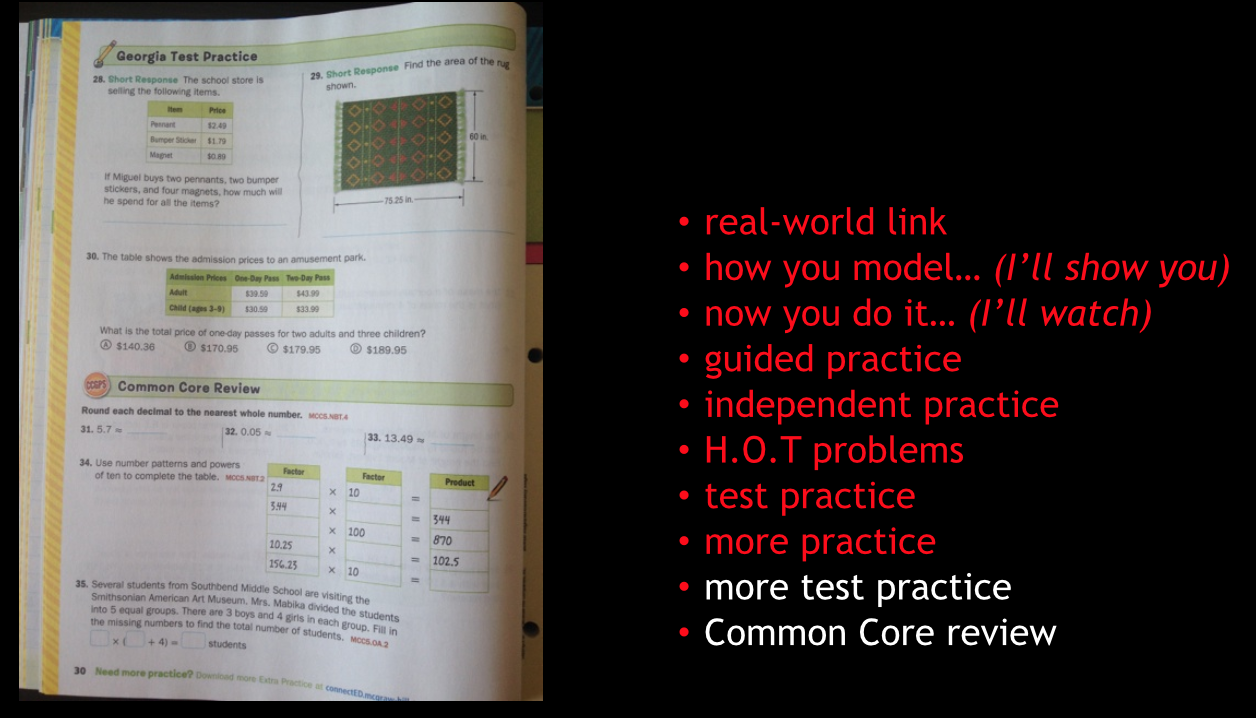
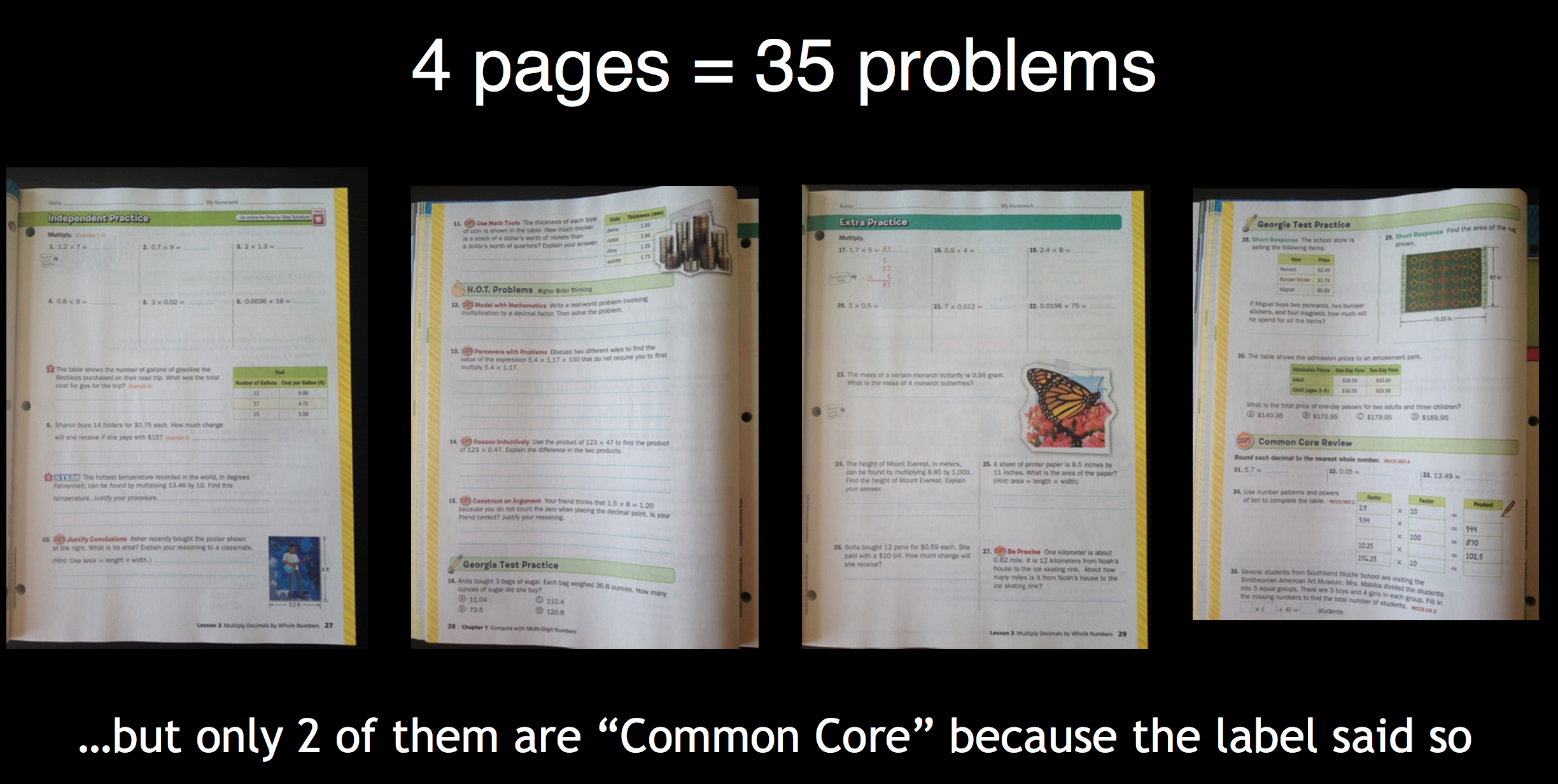
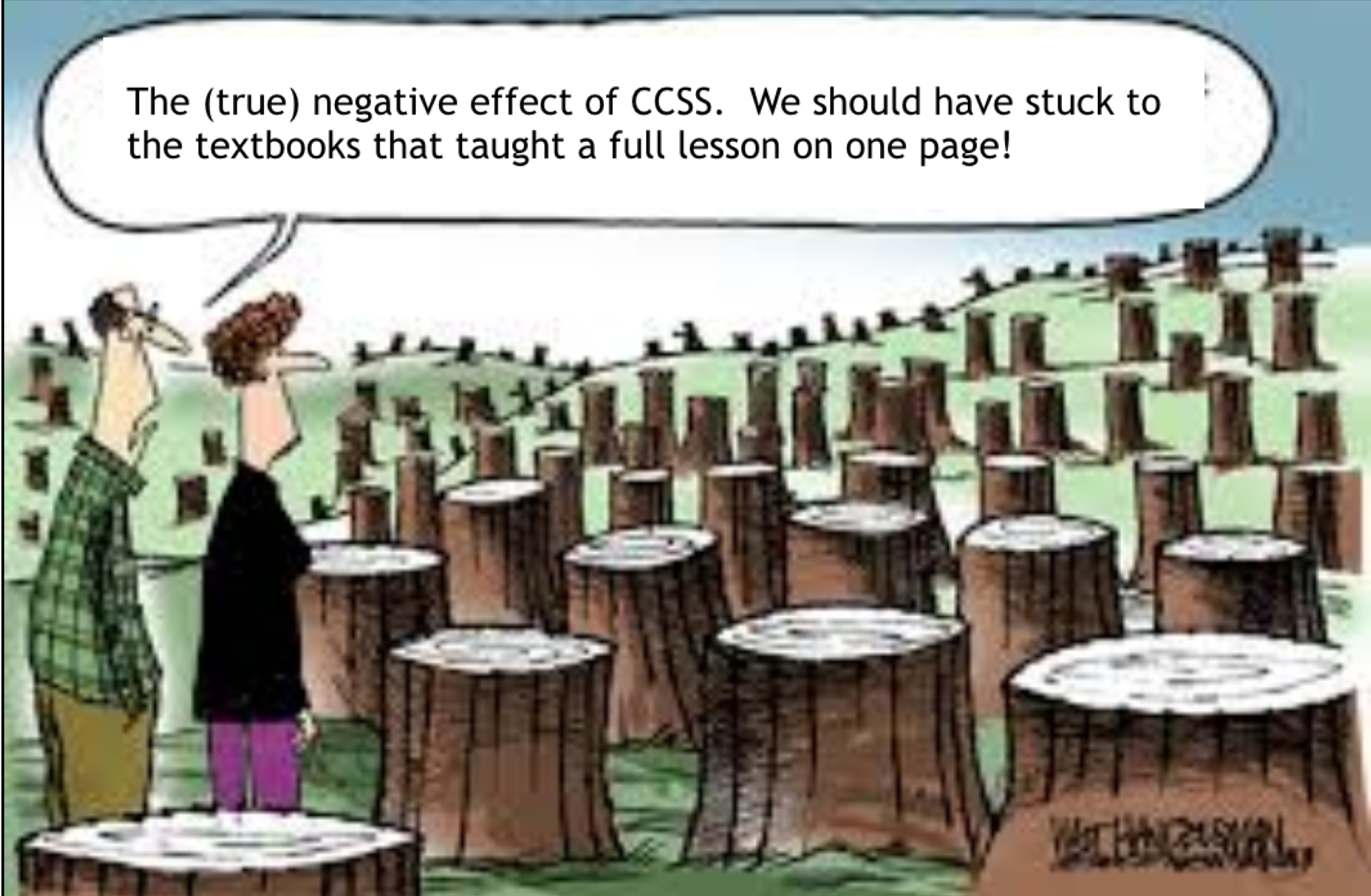

Such a great question Michael! I definitely don’t think these books are a result of CCSS so I hope it didn’t come across as such.
I believe there are many factors that contribute to this cycle and not necessarily just the publishers, although they play a huge part. The publishers are meeting the needs of their consumer and from a business point of view… I get that. However, their unwillingness to adapt and change cannot be ignored either.
There’s an obvious lack of quality pre-service programs for teachers which make them dependent on scripted lessons like the example provided. College and universities must do a better job preparing teachers of the 21st century. In the same breath, districts must be innovative in creating opportunities for teachers to collaborate and grow on a regular basis. What if we took the money invested in textbooks and reallocated in building teacher capacity and purchasing technology that supports best practice. These 2 things alone will empower teachers to recognize quality instructional resources.
Educational leaders (building, district and state) must be willing to not commit to a substandard product as they have done in the past. When that happens publishers will change. In an open-commons era there are so many resources to choose from. Dan, Fawn, Andrew and many other contributors within the #MTBOS continue to create and share their amazing work. Not for money, but for kids! The Georgia Department of Ed has done some great work in creating their math instructional frameworks which are free but districts still purchase textbooks. Why?
Assessments have been the same for the past 50 years and now that the assessment is changing to constructed response…maybe the publishers will change. After all, the only reason we do math is so we can take a test at the end of the year, right?
Thanks for making me think about this idea more in depth Michael. Really appreciate it!
Cheers
Serious question, Graham: is the problem Common Core Math or is this simply a predictable extension of the last 100 or so years of US mathematics education in the hands of fewer and fewer publishers?